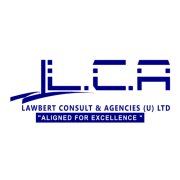Best Tax Increment Financing Lawyers in Uganda
Share your needs with us, get contacted by law firms.
Free. Takes 2 min.
Or refine your search by selecting a city:
List of the best lawyers in Uganda
About Tax Increment Financing Law in Uganda
Tax Increment Financing (TIF) is an economic development tool utilized by local governments in Uganda to incentivize infrastructure development and stimulate economic growth. It involves earmarking future property tax revenues generated from increases in property values within a predefined area. These incremental tax revenues are then used to finance current development projects. TIF is intended to support urban development and attract private investment in designated areas by improving infrastructure and enhancing the commercial viability of projects.
Why You May Need a Lawyer
Engaging with Tax Increment Financing can be complex, entailing legal, financial, and regulatory considerations. Lawyers specializing in TIF can provide valuable assistance in the following scenarios:
1. **Project Structuring:** Ensuring the TIF project complies with regulatory and legal frameworks while maximizing financial benefits.
2. **Contract Negotiation:** Assisting in negotiations with local governments, investors, and contractors to secure favorable terms.
3. **Risk Management:** Identifying potential legal risks associated with TIF projects and developing strategies to mitigate them.
4. **Regulatory Compliance:** Guiding stakeholders through the myriad of local laws and regulations governing TIF to ensure compliance.
5. **Dispute Resolution:** Representing parties in disputes that arise in relation to TIF agreements or project execution.
Local Laws Overview
The legal framework governing Tax Increment Financing in Uganda includes the Public Finance Management Act and related legislation. Key aspects include:
1. **Eligibility:** Projects must meet certain criteria, including economic viability and the potential to generate increased tax revenues.
2. **Approval Process:** TIF proposals require approval from relevant governmental bodies, including financial and environmental assessments.
3. **Revenue Allocation:** Incremental tax revenues are specifically allocated for TIF purposes and cannot be diverted for other uses.
4. **Transparency and Accountability:** Regular audits and reports are mandatory to ensure funds are used appropriately, and projects achieve intended outcomes.
5. **Stakeholder Engagement:** Community involvement and stakeholder consultations are essential to the planning and implementation of TIF projects.
Frequently Asked Questions
1. What is Tax Increment Financing?
TIF is a public financing method used to subsidize infrastructure, community improvement projects, and other developments by capturing the future tax benefits of increased property values for a specific period.
2. Who can initiate a TIF project?
Local governments, developers, or public-private partnerships can initiate TIF projects, provided they meet statutory criteria and gain government approval.
3. Are all areas eligible for TIF?
Not all areas are eligible. TIF is typically applied to underdeveloped or economically stagnant zones that would benefit from private investment and public infrastructure development.
4. How does a TIF district get approved?
A TIF district is approved following a rigorous proposal process, which includes feasibility studies, stakeholder consultations, and government assessments to ensure financial and environmental sustainability.
5. How is a lawyer involved in TIF projects?
Lawyers provide guidance on legal compliance, assist in drafting and negotiating contracts, and represent clients in legal proceedings or disputes related to TIF projects.
6. What are the benefits of TIF?
TIF can drive economic development, improve infrastructure, increase employment opportunities, and enhance the overall quality of life in targeted areas.
7. Are there any risks associated with TIF?
Potential risks include financial mismanagement, ineffective projects that do not increase property values, and legal disputes arising from contractual agreements or regulatory breaches.
8. How can incremental taxes be used?
Incremental taxes are used to repay the debt or cover the costs associated with public improvements and investments within the TIF district.
9. Can TIF be used for any type of project?
No, TIF is typically reserved for projects that can demonstrably benefit the public by enhancing infrastructure, stimulating economic growth, and providing long-term financial returns.
10. How long does a TIF project last?
The duration of TIF projects varies but usually spans several years, sufficient to allow the development to mature and yield incremental tax revenues to cover initial investments.
Additional Resources
For further information on TIF in Uganda, consider contacting the following:
- **Uganda Investment Authority (UIA):** Provides guidance and support for investment projects in Uganda.
- **Ministry of Finance, Planning and Economic Development:** Oversees public financial management, including TIF regulations.
- **Local Government Authorities:** Can provide localized information and support regarding TIF projects in specific districts.
Next Steps
If you need legal assistance with Tax Increment Financing, consider the following steps:
1. **Research and Identify Qualified Lawyers:** Look for lawyers or law firms in Uganda specializing in tax and finance law with experience in TIF.
2. **Schedule Consultations:** Arrange meetings to discuss your TIF project or legal needs, and evaluate the expertise and approach of potential lawyers.
3. **Understand Legal Fees:** Inquire about billing practices and fee structures so you can budget appropriately for legal services.
4. **Document Preparation:** Prepare all necessary documents related to the TIF project for your lawyer to review, ensuring nothing is overlooked.
5. **Seek Ongoing Legal Support:** Establish a relationship with your legal counsel to provide continual guidance throughout the lifecycle of your TIF project.
Lawzana helps you find the best lawyers and law firms in Uganda through a curated and pre-screened list of qualified legal professionals. Our platform offers rankings and detailed profiles of attorneys and law firms, allowing you to compare based on practice areas, including Tax Increment Financing, experience, and client feedback.
Each profile includes a description of the firm's areas of practice, client reviews, team members and partners, year of establishment, spoken languages, office locations, contact information, social media presence, and any published articles or resources. Most firms on our platform speak English and are experienced in both local and international legal matters.
Get a quote from top-rated law firms in Uganda — quickly, securely, and without unnecessary hassle.
Disclaimer:
The information provided on this page is for general informational purposes only and does not constitute legal advice. While we strive to ensure the accuracy and relevance of the content, legal information may change over time, and interpretations of the law can vary. You should always consult with a qualified legal professional for advice specific to your situation.
We disclaim all liability for actions taken or not taken based on the content of this page. If you believe any information is incorrect or outdated, please contact us, and we will review and update it where appropriate.
Browse tax increment financing law firms by city in Uganda
Refine your search by selecting a city.
















